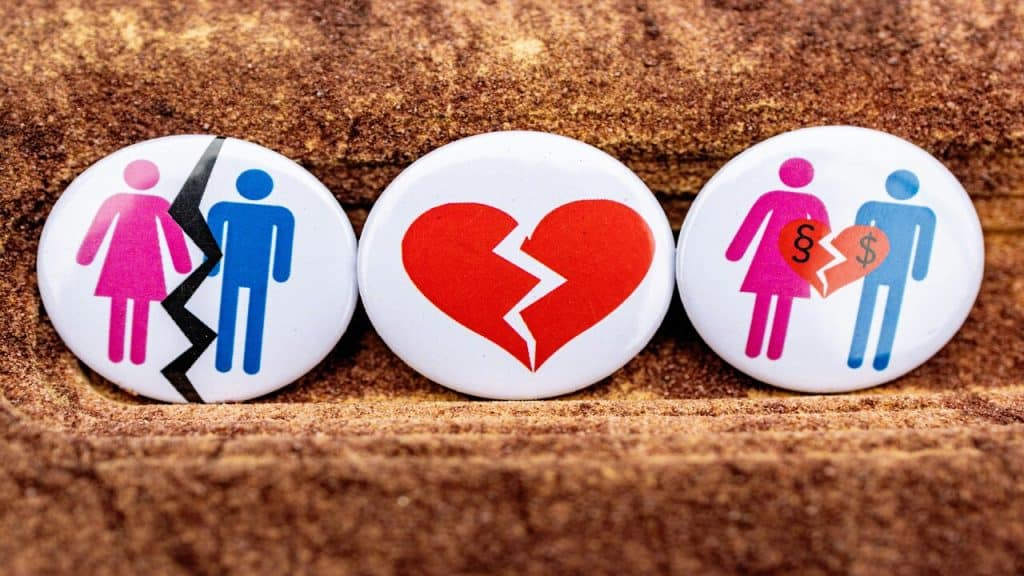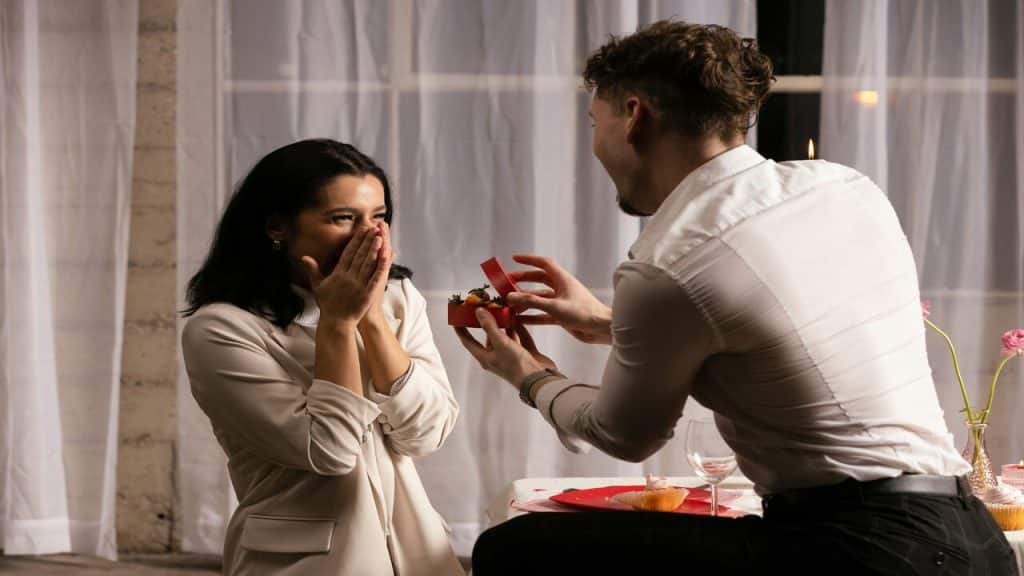
The end of a relationship–whether explosive or quietly fading–always leaves a residue. But what most people carry forward isn’t just heartbreak. It’s faulty wiring. Learned patterns, internalized roles, or toxic beliefs that get mistaken for truth. If you don’t unlearn these, they shape your future relationships into distorted mirrors of your past. The goal isn’t just healing–it’s clarity.
These are 18 things worth shedding.
1. Love Must Be Proven by Suffering

Somewhere along the way, many of us absorbed the belief that love is supposed to hurt. That patience means staying through pain. That drama means passion. But healthy love isn’t earned through emotional endurance. If you equate love with struggle, you’ll miss the ease, safety, and joy that real intimacy offers. Let go of the idea that peace is boring. It’s not. It’s sustainable.
2. Your Needs Are “Too Much”

If someone constantly made you feel like your emotional needs were excessive, that’s not a reflection of you–it’s a sign they couldn’t meet you at the depth you required. Needing connection, reassurance, or clarity isn’t clingy–it’s human. Stop shrinking to fit people who can’t hold space for your wholeness. The right person won’t flinch at your emotional range–they’ll welcome it.
3. Your Worth Is Tied to Being Chosen

If you measured your value based on whether someone stayed, texted back, or made you their priority, it’s time to release that equation. Being chosen doesn’t mean you’re worthy–being worthy is your default state. You don’t need to chase connection to be valid. Start choosing yourself so that when love shows up again, it’s an addition, not a lifeline.
4. You’re Responsible for Other People’s Emotions

If you felt like it was your job to keep the peace, manage their moods, or walk on eggshells, you likely learned to over-function emotionally. But someone else’s volatility or withdrawal isn’t your fault. You can be supportive without being their emotional caretaker. Real intimacy includes emotional accountability on both sides. You don’t have to carry what isn’t yours.
5. Conflict Means the Relationship Is Doomed

Somewhere, maybe early on, you learned that fighting equals failure. But conflict is inevitable in any relationship–it’s how it’s handled that counts. Avoiding tough conversations only builds silent resentment. Unlearn the fear of tension. The healthiest relationships aren’t the ones without conflict–they’re the ones where both people feel safe enough to disagree and still stay connected.
6. Being Chosen Means You’re Safe

Just because someone picked you doesn’t mean they knew how to keep you safe, emotionally or otherwise. The title of “partner” doesn’t guarantee maturity, empathy, or commitment. Unlearn the assumption that commitment equals care. Start observing whether they consistently show up, respect your boundaries, and make space for your emotional world. That’s where safety lives.
7. Apologizing Means You’re Weak

If you learned to win fights instead of resolve them, you may equate apology with weakness. But real strength is owning your impact–even if your intent was good. Being willing to say, “I hurt you, and I see it,” without defensiveness builds intimacy and trust. Let go of the pride that keeps you disconnected. Vulnerability isn’t a liability–it’s a bridge.
8. You Have to Be Perfect to Be Loved

If you bent yourself into impossible shapes trying to earn love, you might still believe that any flaw makes you unlovable. But true connection happens when we let ourselves be seen–even in the messy, insecure moments. The right person won’t need your perfection. They’ll appreciate your realness. Stop editing yourself. The right people will meet you there.
9. Jealousy Means They Care

Jealousy is often mistaken for passion. But in reality, it’s often a red flag masked as devotion. Possessiveness isn’t love–it’s control. If you were in a relationship where jealousy got weaponized or romanticized, unlearn that narrative. Healthy love is built on trust and freedom, not fear and surveillance. Caring doesn’t require suspicion.
10. Walking Away Is a Failure

If you internalized that staying equals loyalty, then leaving–even when something was hurting you–might feel like defeat. But walking away can be an act of deep self-respect. Sometimes the most powerful thing you can do is end what no longer honors your growth. Unlearning this means allowing yourself to choose peace over persistence when it’s time.
11. Attraction Means Compatibility

Just because the chemistry was intense doesn’t mean the relationship was right. Physical or emotional sparks can be misleading when they’re mixed with unhealed wounds or unmet childhood needs. Attraction might pull you in, but it’s compatibility–shared values, emotional availability, life direction–that holds things together. Unlearn the lie that intensity equals alignment.
12. You Must Always “Win” Arguments

If you felt the need to always be right in order to feel secure or in control, chances are you were more focused on defending yourself than understanding your partner. But in a healthy relationship, winning doesn’t matter–repair does. Let go of the ego battle. The goal is connection, not dominance. Unlearn the instinct to score points and start learning how to listen.
13. People Change If You Love Them Enough

Love can inspire growth, but it’s not a magical fix. You can’t rescue someone from their own unwillingness to evolve. If you stayed hoping they’d become who you needed them to be, you were loving their potential, not their reality. That’s a setup for heartbreak. Unlearn the idea that your love should transform someone. Let people be responsible for their own growth.
14. Setting Boundaries Is Selfish

If you were made to feel guilty every time you said no or needed space, you may have learned that love means self-sacrifice. But boundaries aren’t walls–they’re doors that define what’s allowed in. They protect your peace, your energy, and your self-respect. Saying no doesn’t make you mean–it makes you clear. Unlearn the guilt. Boundaries are how healthy relationships survive.
15. You Have to Earn Being Treated Well

If you found yourself over-giving, over-proving, or constantly auditioning for basic decency, it’s time to unlearn the belief that love is transactional. You don’t have to perform to be treated with kindness and respect. That should be the baseline. Stop hustling for the bare minimum. Learn to receive without negotiation. Your worth isn’t up for debate.
16. Silence Is Safer Than Honesty

If you tiptoed around the truth to keep things calm, you might think honesty always leads to rejection or rupture. But withholding your truth is a form of self-abandonment. It creates disconnection over time, even if it keeps things “peaceful” short-term. Unlearn the habit of hiding. Real intimacy requires honesty–even when it’s uncomfortable.
17. Their Bad Behavior Was Your Fault

If you were constantly blamed for their outbursts, neglect, or cheating, you may have internalized their dysfunction as your doing. But their inability to love well wasn’t because you weren’t enough–it was because they weren’t equipped. Don’t take responsibility for someone else’s brokenness. Healing means learning the difference between guilt and gaslighting.
18. Love Is Scarce and Hard to Find

If you stayed because you feared you’d never find anything better, you were operating from scarcity, not truth. That belief keeps people clinging to relationships that no longer serve them. But love isn’t a one-time opportunity–it’s abundant when you’re aligned with yourself. Unlearn the fear that this was your only shot. You haven’t missed it. Real love doesn’t require you to disappear to receive it.






Ask Me Anything